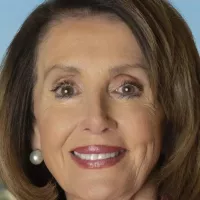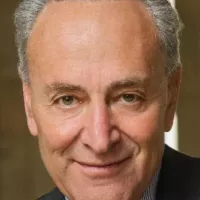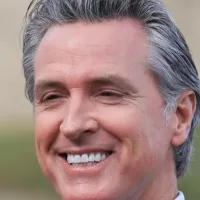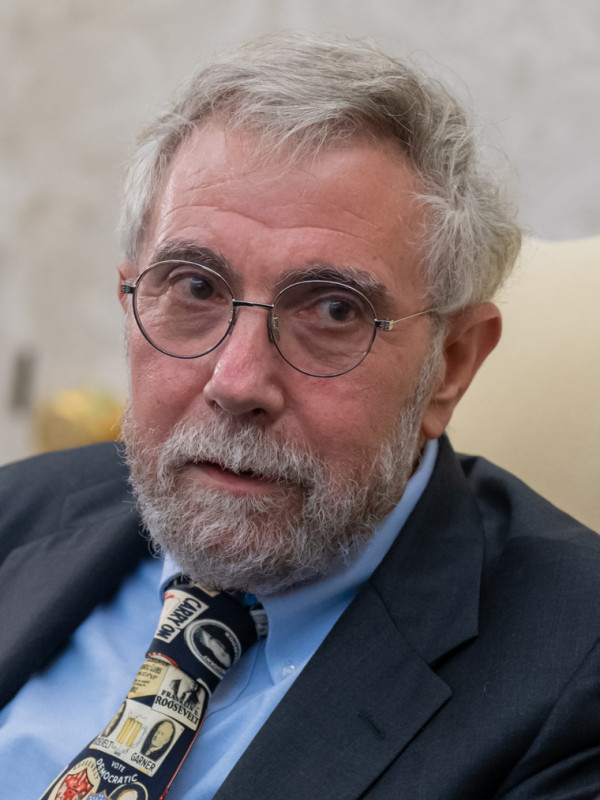Controversies are a part of history. Explore the biggest scandals linked to Paul Krugman.
Paul Krugman is a New Keynesian economist and Distinguished Professor at the City University of New York's Graduate Center. He is renowned for his contributions to new trade theory and new economic geography, which earned him the 2008 Nobel Prize in Economic Sciences. His work explains international trade patterns and the geographic distribution of economic activity, considering economies of scale and consumer preferences. He was a columnist for The New York Times from 2000 to 2024, using his platform to discuss and critique economic policies and events.
1967: Krugman's Criticism of Galbraith's "The New Industrial State"
Paul Krugman has been critical of some Post-Keynesian economists such as John Kenneth Galbraith, Krugman referred to Galbraith's 1967 work "The New Industrial State" as not "real economic theory".
1981: Krugman on Reagan's tax policies
After the 2016 elections and Trump's move towards protectionism, Paul Krugman wrote that protectionism can make economies less efficient, but would not directly cause recessions. He advised against repeating Reagan's 1981 policy on taxes and quotas on imported products.
1987: Krugman's Criticism of Galbraith's "Economics in Perspective"
Paul Krugman has been critical of some Post-Keynesian economists such as John Kenneth Galbraith, Krugman referred to Galbraith's 1987 work "Economics in Perspective" as "remarkably ill-informed".
1994: Foreign Affairs Article on East Asian Economic Growth
In a 1994 Foreign Affairs article, Paul Krugman argued that the economic successes of the East Asian 'tigers' were not an economic miracle but rather were fueled by mobilizing resources, and that their growth rates would inevitably slow. His article helped popularize the argument that the growth of economies in East Asia was not the result of new and original economic models, but rather from high capital investment and increasing labor force participation.
2000: Trump's Claim About Krugman's Market Call
After Trump gave Paul Krugman a 'Fake News Award', Krugman stated "I get a 'fake news award' for a bad market call, retracted 3 days later, from 2000-lie man, who still won't admit he lost the popular vote. Sad!"
2000: Focusing on George W. Bush's Policy Proposals in Columns
Starting in 2000, Paul Krugman focused on George W. Bush's policy proposals in his New York Times columns. Krugman accused Bush of misrepresenting his proposals and criticized the proposals themselves.
2003: Criticism of Columns in The Economist
In 2003, The Economist questioned Paul Krugman's "growing tendency to attribute all the world's ills to George Bush", with critics claiming that "his relentless partisanship is getting in the way of his argument".
August 2005: Criticism of Alan Greenspan's Reluctance to Regulate Financial Markets
In August 2005, Paul Krugman criticized Alan Greenspan's earlier reluctance to regulate the mortgage and related financial markets, arguing that Greenspan and Phil Gramm are the two individuals most responsible for causing the subprime crisis.
2005: Predicted Limited Impact of the Internet
Around 2005, Paul Krugman predicted that the Internet's impact on the economy would be no greater than that of the fax machine, and that the number of jobs for IT specialists would decline.
2006: Krugman on the Impact of Immigration on Wages
In 2006, Paul Krugman wrote that immigration reduces the wages of domestic workers who compete with immigrants due to increased supply, estimating a fiscal burden of 0.25% of GDP.
December 2009: Krugman's Criticism of Obama's Job Summit
In December 2009, in anticipation of President Obama's Job Summit, Paul Krugman stated in a Fresh Dialogues interview that the proposal needed to be significant, suggesting something like $300 Billion, as anything less would be viewed as a joke.
June 28, 2010: Krugman's Criticism of Global Deficit Reduction Agreement
On June 28, 2010, Paul Krugman criticized world leaders for agreeing to halve deficits by 2013, claiming these efforts could lead the global economy into a "third depression". He advocated for continued economic stimulus.
2011: Criticism of Bitcoin Begins
In 2011, Paul Krugman started to voice criticism of Bitcoin, arguing against its economic soundness.
2012: Krugman Praises Peter Beinart’s 'The Crisis of Zionism'
In 2012, Paul Krugman praised Peter Beinart’s The Crisis of Zionism as a "brave book," criticizing the policies of Benjamin Netanyahu’s government.
2013: G-20 Toronto Summit deficit reduction targets
In his June 28, 2010 column in The New York Times, Paul Krugman criticized world leaders for agreeing to halve deficits by 2013 at the recent G-20 Toronto Summit. Krugman claimed that these efforts could lead the global economy into the early stages of a "third depression" and leave "millions of lives blighted by the absence of jobs". He advocated instead the continued stimulus of economies to foster greater growth.
2015: Krugman's Ambivalence About the Trans-Pacific Partnership
In 2015, Paul Krugman expressed ambivalence about the Trans-Pacific Partnership, stating that it was not mainly about trade and most of the benefits of free trade had already been realized by existing agreements.
2015: Irish GDP and GNP Growth
In July 2016, Paul Krugman tweeted "leprechaun economics" in response to Central Statistics Office (Ireland) data that 2015 GDP grew 26.3% and 2015 GNP grew 18.7%.
January 19, 2016: Criticism of Bernie Sanders' Presidential Campaign
On January 19, 2016, Paul Krugman criticized Bernie Sanders' presidential campaign for a perceived lack of political realism, comparing Sanders' plans for healthcare and financial reform unfavorably to those of Hillary Clinton.
July 2016: "Leprechaun economics" Tweet
In July 2016, Paul Krugman tweeted "leprechaun economics" in response to Central Statistics Office (Ireland) data that 2015 GDP grew 26.3% and 2015 GNP grew 18.7%.
2016: Krugman on Protectionism and Trade Wars
After the 2016 elections and Trump's move towards protectionism, Paul Krugman wrote that protectionism can make economies less efficient, but would not directly cause recessions. He advised against repeating Reagan's 1981 tax and quota policies on imported products, recommending against the abandonment of NAFTA.
2016: Krugman's Incorrect Market Prediction After Trump's Election
On election night in 2016, Paul Krugman wrongly predicted in a New York Times op-ed that the markets would never recover under Trump and stated "first-pass answer is never", but retracted the call in the same publication three days later.
2017: Bitcoin Bubble Prediction
In 2017, Paul Krugman predicted that Bitcoin was a more obvious bubble than housing and questioned its usefulness in economic transactions.
2018: Proof of Apple's restructuring of double Irish subsidiaries
In 2018, the leprechaun economics affair was proved to be Apple restructuring its double Irish subsidiaries.
June 2021: Article titled, "Yellen's New Alliance Against Leprechauns"
In June 2021, Paul Krugman wrote an article titled, "Yellen's New Alliance Against Leprechauns". Following the article, the Irish Ambassador to the US, Daniel Mulhall, wrote a letter to his publisher saying that the use of the word 'leprechaun' when referring to Ireland represents an unacceptable slur.
December 2022: Prediction of Job Displacement Due to AI
In December 2022, Paul Krugman predicted that generative AI like ChatGPT could replace many knowledge jobs, potentially leading to unemployment or reduced earnings for some.
2024: Krugman's Revised View on Immigration's Impact on Wages
In 2024, Paul Krugman reported that most labor economists now believe that immigrants don't greatly compete with native-born workers, highlighting exceptional wage growth for the lowest paid during recent elevated immigration.
2024: Krugman on Netanyahu’s government during the Gaza war.
In 2024, amidst the Gaza war, Paul Krugman wrote that Netanyahu’s government was "killing huge numbers of civilians" but expressed skepticism at President Joe Biden’s ability to stop the body count, and said he avoided thinking about Israel’s direction.
Mentioned in this timeline

Bernie Sanders is a prominent American politician currently serving as...
Ukraine is a large Eastern European country bordering Russia Belarus...
The United States of America is a federal republic located...

The Trans-Pacific Partnership TPP was a proposed trade agreement among...

Bill Clinton the nd U S President - served as...

The White House located at Pennsylvania Avenue NW in Washington...
Trending

28 days ago Kushner and Witkoff Broker Gaza Peace Deal: Hostage Recovery Secured by Netanyahu
1 hour ago Justin Dean claimed by Giants after Dodgers World Series Win, Moves to Rival.

15 days ago [TO_BE_ADDED_BY_AI]

6 months ago Tony Gonsolin aims for fourth straight win; Soto prop bets analyzed for Dodgers-Mets.

1 hour ago Yankees Offer Qualifying Contract to Trent Grisham: Center Field Plans Unveiled.
1 hour ago Judge orders Trump administration to fully fund SNAP benefits for November, reversing cuts.
Popular

Nancy Pelosi is a prominent American politician notably serving as...

Zohran Kwame Mamdani is an American politician currently serving as...

William Franklin Graham III commonly known as Franklin Graham is...

Chuck Schumer is the senior United States Senator from New...

Gavin Newsom is an American politician and businessman currently serving...
Abigail Spanberger is an American politician who served as the...



